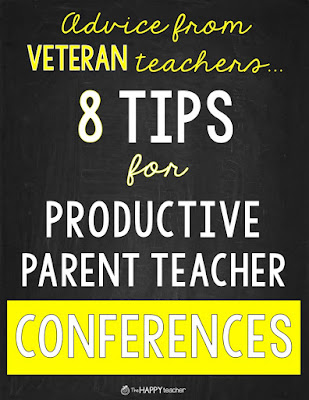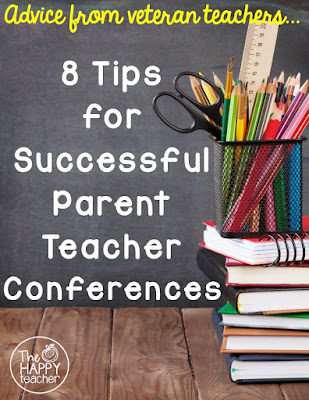1. Start with a positive. Praise the child, share a funny or sweet story, and tell the parent what you love about their child.
2. Discuss the child’s strengths. Examples: Asks for help, prepared for class, demonstrates self-control, follows directions, gets along well with others, has a positive attitude, thinks creatively, participates in class, accepts responsibility...
3. Review test results, grades, and student work. Give concrete examples of what the student is learning in class by showing work samples. Review data from standardized testing, benchmark testing, etc. Use a highlighter to note the important aspects of the data BEFORE the conference begins so you can keep this portion of the conference focused.
4. Address your concerns and areas needing improvement. Be very specific. Don’t just say the child is struggling in math. What specifically are they having trouble with in math? Examples: Student needs to work on mastering multiplication math facts. Student needs to work on communicating respectfully with adults. Student needs to work on completing class work on a regular basis.
5. Discuss ways the parents can help at home. Give parents resources to use at home, such as a bookmark with reading comprehension questions they can ask their child while they read together at night. A list of websites & apps is something parents always ask for. Identify 2-3 specific things that the parent can do with their child.
6. End with another positive. Praise the child and tell the parent how thankful you are to have the child in your class.
Realistically, you have 15-20 minutes with each parent. The time will fly by! I don't have a set time for questions because our conference is a two-way conversation. Parents should ask questions along the way. :) Stick to this format, and your conferences will be a breeze!




No comments
Post a Comment